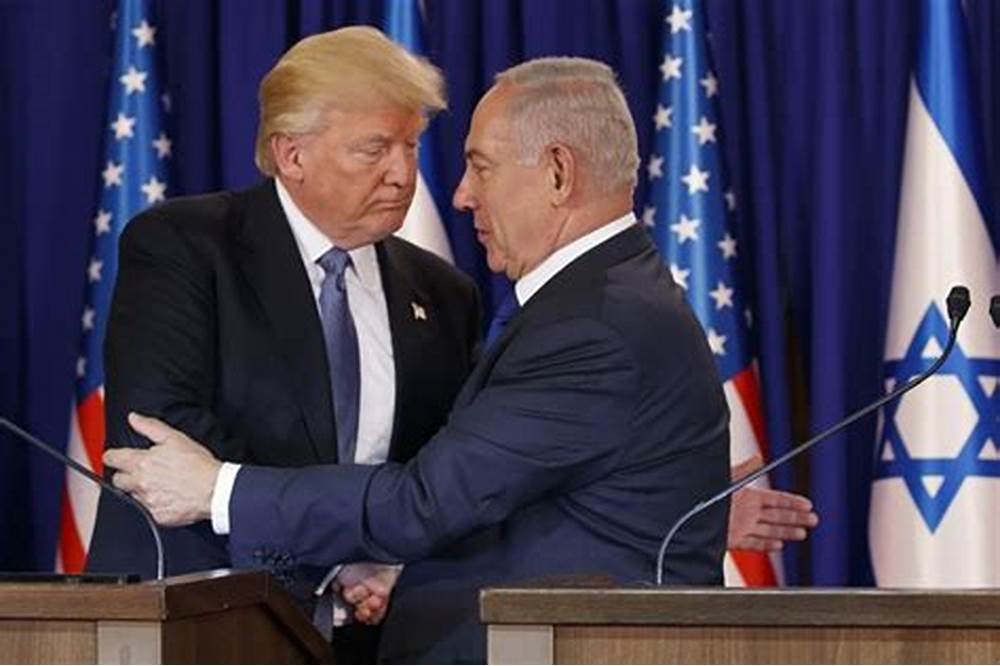Israeli Prime Minister Benjamin Netanyahu is set to visit Washington, marking his first White House meeting with President Donald Trump since his return to office. This high-profile visit is already generating intense global discussions, especially regarding its implications for Gaza, U.S.-Israel relations, and broader Middle Eastern diplomacy. As tensions in the region remain high, this meeting could shape future policies with lasting consequences.
Netanyahu and Trump have shared a historically strong relationship, particularly during Trump’s previous administration. Their collaboration led to the controversial relocation of the U.S. embassy to Jerusalem and the signing of the Abraham Accords, which normalized Israel’s relations with several Arab nations. With Trump back in power, experts speculate that Netanyahu will leverage this meeting to reinforce Israel’s strategic interests, secure further U.S. backing, and influence policies affecting Gaza.
According to senior Israeli officials, Netanyahu’s agenda will include discussions on military aid, intelligence-sharing, and counterterrorism strategies. There is also growing speculation that the two leaders may discuss new diplomatic efforts or military initiatives related to ongoing tensions with Hamas and other groups in Gaza.
The humanitarian and political situation in Gaza remains dire. The region has been grappling with ongoing conflict, economic hardships, and restricted access to essential resources. Netanyahu’s visit to the White House raises critical questions about the future of U.S. policy toward Gaza. Will Trump’s administration introduce new sanctions? Will military operations intensify? Or could this meeting pave the way for a long-term ceasefire?
Palestinian leaders and human rights organizations are closely watching the visit, concerned that renewed U.S.-Israel cooperation may lead to tougher measures against Gaza. Some reports suggest that Netanyahu could push for increased military action, while others believe the meeting might focus on economic incentives aimed at reducing hostilities.
Dr. Hanan Ashrawi, a prominent Palestinian political analyst, warned that “any agreement that prioritizes military alliances over humanitarian considerations will only escalate the crisis in Gaza. The people need aid, not more restrictions.”
Netanyahu’s return to the White House is not just about U.S.-Israel relations. It signals a broader shift in Middle East diplomacy. Regional players, including Saudi Arabia, Iran, and Egypt, are keenly observing whether Trump’s administration will recalibrate its approach to Israel’s security concerns and Palestinian statehood ambitions.
There are also concerns within the European Union and the United Nations regarding the possible erosion of previous diplomatic negotiations. The Biden administration had adopted a more balanced approach, advocating for a two-state solution. With Trump back, there is speculation that U.S. policy will shift more decisively in favor of Netanyahu’s right-wing government.
Middle East expert Dr. Jonathan Marcus explains, “This meeting will not only affect Gaza but could redefine U.S. engagement in the region. Allies and adversaries alike will recalibrate their positions based on the outcome.”
As the global political landscape evolves, we at Innovation Times remain committed to delivering in-depth analysis, breaking news, and expert insights. Don’t miss out on exclusive reports covering international affairs, technology, leadership, and entrepreneurship.
Click here to subscribe and stay informed on the latest developments shaping our world.
Stay ahead with the latest news on global innovation, leadership, entrepreneurship, business, and tech. Join us on WhatsApp or Telegram for real-time updates. Have a report or article? Send it to report@theinnovationtimes.com. Follow us on X (Twitter), Instagram, LinkedIn, Pinterest and Facebook for more insights and trends.
What Netanyahu’s Return to the White House Means for Gaza
89



